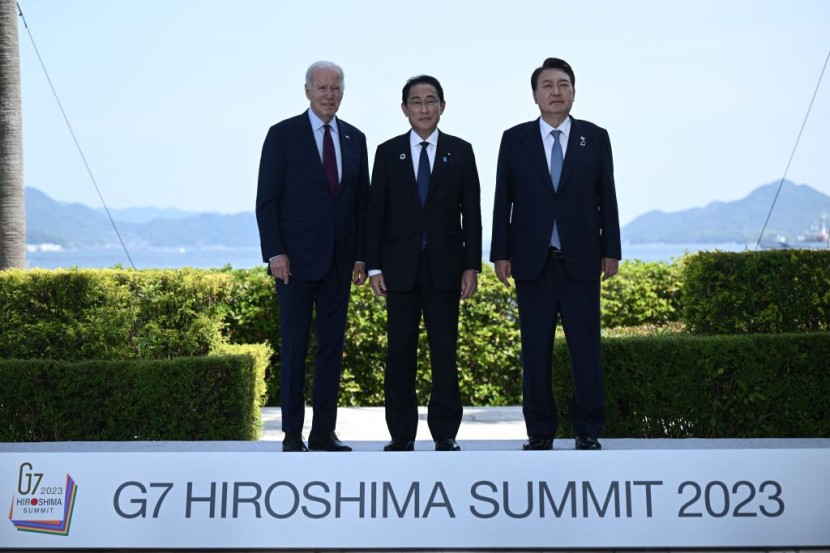
The United States, South Korea, and Japan have condemned North Korea's launch of an intercontinental ballistic missile (ICBM) and pledged to work with the international community to increase sanctions against Pyongyang.
In a joint statement released on Friday, the three allies vowed to combat North Korea's "illicit revenue generation through overseas laborers and malevolent cyber activities," which they claim is used to finance its weapons programs.
North Korea Slammed Over Recent Missile Test
Ahead of the Association of Southeast Asian Nations (ASEAN) summit in Indonesia, US Secretary of State Antony Blinken conferred with his Japanese and South Korean counterparts.
On Wednesday, North Korea launched an intercontinental ballistic missile, which impacted in waters between the Korean Peninsula and Japan. Per Al Jazeera, it was the first launch of its kind in three months, as tensions between Pyongyang and Washington grew.
Two days earlier, North Korea criticized a US plan to deploy nuclear submarines near the Korean Peninsula, stating that the move could "incite the worst nuclear conflict crisis in history."
Kim Song, North Korea's ambassador to the United Nations, told the UN Security Council on Thursday that the launch of an intercontinental ballistic missile was intended "to deter the hazardous military maneuvers of hostile forces and to protect the security" of the country.
In a statement issued on Friday, the United States, South Korea, and Japan condemned the North Korean launch as hazardous. In the past two years, North Korea has intensified its missile testing.
US Encourages Japan to Ramp Up Defense Efforts
Meanwhile, the highest-ranking US military officer encouraged Japan's commitment to doubling its defense expenditure over the next five years, describing Tokyo's controversial drive for a stronger military as essential to counter rising North Korean and Chinese threats.
Chairman of the Joint Chiefs of Staff Gen. Mark Milley mentioned Japan's need for improvements in cruise missile defense, early warning missile systems, and air capabilities, all of which would aid the United States in its efforts to counter North Korea's push for a nuclear missile program capable of pinpoint-targeting the US mainland and China's increasing aggression against Taiwan, the democratic island Beijing claims as its own.
With more than 80,000 US personnel stationed in Japan and South Korea, North Korea and China are increasing their military activity. The possibility of conflict in the region has become a growing concern. Washington wants its allies to do more, primarily Tokyo and Seoul.
Per Fox News, Japan has struggled for a long time with the need for a formidable military despite a domestic and regional aversion to anything perceived as excessively aggressive.
In the years leading up to World War II, Japanese soldiers overran much of Asia, and the nation is still regarded with resentment by many neighboring nations due to the perception that it has not completely repented.
Related Article : North Korea Makes Rare Move, Defends Recent Missile Test at UN Security Council Meeting








